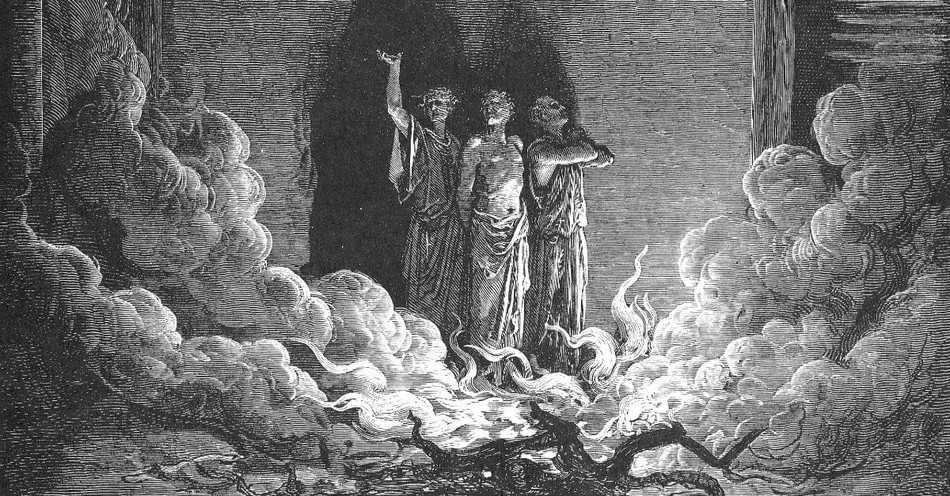Introduction
The story of Shadrach, Meshach, and Abednego, found in the Book of Daniel, is one of the most compelling narratives in the Bible. These three young men, originally named Hananiah, Mishael, and Azariah, were Hebrew captives in Babylon who faced a life-threatening challenge to their faith. King Nebuchadnezzar had erected a colossal golden statue and decreed that all subjects must bow down and worship it, under penalty of being thrown into a fiery furnace.
Shadrach, Meshach, and Abednego’s refusal to bow to the idol, even under the threat of death, demonstrate unwavering faith and divine deliverance. Their story highlights the power of steadfast belief in God and serves as an enduring lesson in courage and integrity. This article explores the deeper meanings behind their Hebrew and Babylonian names, recounts their extraordinary story, and reflects on the timeless lessons their experience imparts to believers today.
Meaning of the Names
Shadrach, Meshach, and Abednego were originally named Hananiah, Mishael, and Azariah. These Hebrew names hold significant meanings:
Hananiah (Shadrach): "Yahweh is gracious"
Mishael (Meshach): "Who is what God is?"
Azariah (Abednego): "Yahweh has helped."
Their Babylonian names reflected the local deities and culture, symbolizing their captors' attempt to assimilate them into Babylonian society.
The Bible Story of Shadrach, Meshach, and Abednego
The story of Shadrach, Meshach, and Abednego is found in the Book of Daniel, Chapter 3. These three young men, originally named Hananiah, Mishael, and Azariah, were Hebrew captives in Babylon under King Nebuchadnezzar. The king erected a massive golden statue and decreed that all must bow down and worship it whenever they heard the sound of musical instruments. Anyone who disobeyed would be thrown into a blazing furnace (Daniel 3:4-6).
Shadrach, Meshach, and Abednego refused to worship the statue, declaring their loyalty to God. They told the king, "If we are thrown into the blazing furnace, the God we serve is able to deliver us from it... But even if he does not, we want you to know, O king, that we will not serve your gods or worship the image of gold you have set up" (Daniel 3:17-18).
Enraged, Nebuchadnezzar ordered the furnace to be heated seven times hotter than usual and had the three men bound and thrown into the fire. The heat was so intense that it killed the soldiers who threw them in (Daniel 3:19-22). However, as the king looked into the furnace, he saw four men walking unharmed in the flames, the fourth appearing like "a son of the gods" (Daniel 3:25).
Amazed, Nebuchadnezzar called them out of the furnace. Shadrach, Meshach, and Abednego emerged unscathed, with no smell of fire on them. This miraculous event led the king to praise their God and decree that anyone who spoke against the God of Shadrach, Meshach, and Abednego would be punished. He recognized that no other god could save in such a manner (Daniel 3:26-29).
This story exemplifies unwavering faith and God's power to deliver His followers from persecution.
Lessons for Today
The story of Shadrach, Meshach, and Abednego offers several timeless lessons:
Unwavering Faith:
Their refusal to worship the idol, even under the threat of death, exemplifies steadfast faith. This teaches believers to trust God regardless of the outcome.
Divine Presence in Trials:
The presence of the fourth figure in the furnace symbolizes God's presence with His followers during their trials. This aligns with the promise in Isaiah 43:2, "When you walk through the fire, you will not be burned; the flames will not set you ablaze."
Courage and Integrity:
Their courage in opposing the king's decree inspired them to maintain integrity and moral conviction in the face of societal pressures and threats.
Witness to God's Power:
After witnessing the miracle, Nebuchadnezzar recognized God's power, which highlights how steadfast faith can lead others to acknowledge and glorify God.
Theological Insights
Theologians and biblical commentators have provided profound insights into this narrative:
Faith Over Fear: Commentaries emphasize that Shadrach, Meshach, and Abednego's faith in God's deliverance—or His will otherwise—reflects a deep trust in God's sovereignty. Their statement, “But even if he does not,” signifies a mature faith that trusts God’s wisdom and timing.
Symbol of Christ: Some theologians interpret the fourth figure in the furnace as a pre-incarnate appearance of Christ, illustrating God's intervention and salvation for His faithful servants.
Moral Example: Matthew Poole’s commentary highlights their unwavering decision as a model for believers, illustrating the importance of firm resolve in upholding one's beliefs against all odds.
Conclusion
The story of Shadrach, Meshach, and Abednego is more than an ancient tale; it is a beacon of faith, courage, and divine deliverance. Their legacy encourages believers to hold firm in their faith, trust in God's presence during trials, and stand as witnesses to His power. This narrative continues inspiring and guiding individuals facing their "fiery furnaces" today.
Christianity.com's editorial staff is a team of writers with a background in the Christian faith and writing experience. We work to create relevant, inspiring content for our audience and update timely articles as necessary.
This article is part of our Bible resource for understanding the significance and meaning of biblical phrases and ideas. Here are our most popular Bible articles to grow in your knowledge of God's Word:
Promises of God in the Bible
Is "This Too Shall Pass" in the Bible?
What Was the Ark of the Covenant?
Top 10 Bible Stories for Kids
“Iron Sharpens Iron” in Proverbs 27:17
"Fearfully and Wonderfully Made" in Psalm 139
“Be Still and Know That I am God” in Psalm 46:10
"No Weapon Formed Against Me Shall Prosper" - Isaiah 54:17




